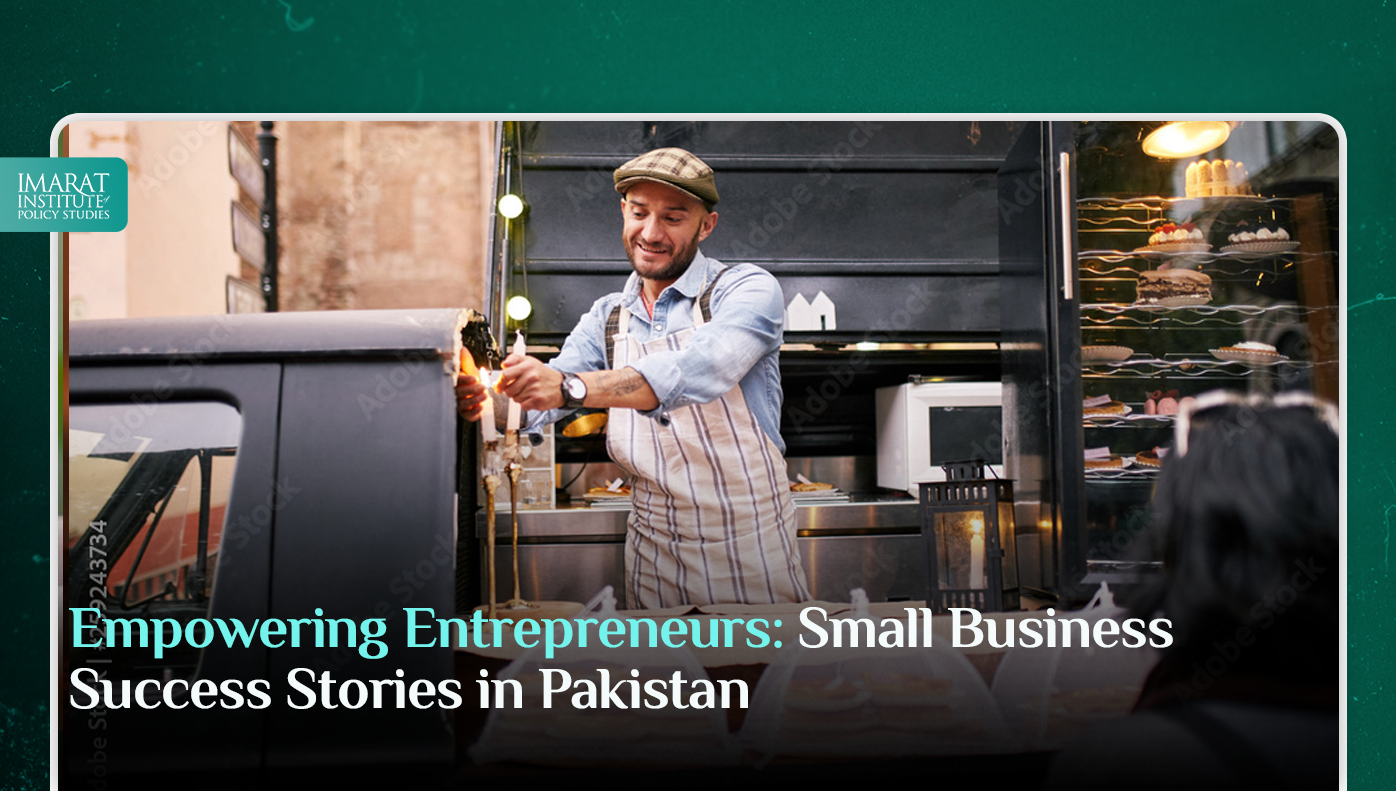In the bustling streets of Karachi, the vibrant markets of Lahore, and the entrepreneurial hubs of Islamabad, a wave of innovation and creativity is sweeping through Pakistan’s small business landscape. From artisanal crafts to tech startups, small businesses are not only driving economic growth but also transforming communities and empowering individuals. In this comprehensive exploration, we delve into the inspiring success stories of small businesses in Pakistan, highlighting the ingenuity, resilience, and determination of the entrepreneurs behind them.
The Rise of Small Businesses in Pakistan
Pakistan has seen a surge in small businesses in recent years, fueled by a combination of factors such as technological advancements, changing consumer preferences, and a growing culture of entrepreneurship. According to the State Bank of Pakistan, small and medium enterprises (SMEs) account for around 40% of Pakistan’s GDP and employ over 80% of the non-agricultural workforce.
One of the key drivers of this growth is the increasing accessibility of technology and the internet. With the proliferation of smartphones and the expansion of internet connectivity, entrepreneurs in Pakistan have unprecedented access to global markets and resources. E-commerce platforms such as Daraz, Telemart, and OLX have provided a platform for small businesses to reach customers beyond their local markets and scale their operations.
Moreover, the rise of coworking spaces, incubators, and accelerators has created a supportive ecosystem for aspiring entrepreneurs in Pakistan. Organizations like The Nest I/O in Karachi and NIC Islamabad provide mentorship, training, and networking opportunities to help startups thrive in a competitive market.
Success Stories of Small Businesses
Khaadi
Founded in 1998 by Shamoon Sultan, Khaadi started as a small venture selling hand-woven fabrics. Today, it has grown into one of Pakistan’s leading fashion brands, with over 60 stores nationwide and a presence in international markets. Khaadi’s success lies in its commitment to promoting traditional craftsmanship while embracing modern design sensibilities. Khaadi generated revenue of PKR 40.3 billion in the financial year 2020-2021, marking a significant growth trajectory.
Patari
Launched in 2015 by Khalid Bajwa and Humayun Haroon, Patari is a music streaming platform that showcases Pakistani music to a global audience. Despite facing challenges such as copyright issues and funding constraints, Patari has emerged as a cultural phenomenon, promoting local artists and celebrating Pakistan’s rich musical heritage. As of 2022, Patari boasts over 3 million monthly active users, with a catalog of over 100,000 songs.
Safi.pk
Safi.pk is a health and wellness brand founded by Dr. Bilal Sajid in 2016. Inspired by his own struggles with acne, Dr. Sajid created a line of skincare products using natural ingredients sourced from Pakistan. Today, Safi.pk has a loyal customer base and has expanded its product range to include hair care, personal hygiene, and dietary supplements. The company reported a revenue of PKR 15 million in its first year of operations and has since experienced steady growth.
The Mad Hatters
Started by sisters Fatima and Zahra Khan in 2014, The Mad Hatters is a Lahore-based startup that specializes in handcrafted hats and accessories. What began as a passion project has now become a thriving business, with The Mad Hatters’ products being featured in fashion magazines and worn by celebrities both in Pakistan and abroad. The company’s revenue doubled in the first three years of operation, reaching PKR 5 million annually by 2017.
Roshan Packages: Founded in 1996 by Muhammad Aslam Khan, Roshan Packages is a leading packaging solutions provider in Pakistan. From humble beginnings as a small printing press, Roshan Packages has grown into a multi-million-dollar enterprise, serving clients in diverse industries such as food and beverage, pharmaceuticals, and textiles. The company reported a revenue of PKR 2.5 billion in the financial year 2020-2021, with an annual growth rate of 15%.
Challenges Faced by Small Businesses
Despite their success, small businesses in Pakistan face numerous challenges that threaten their growth and sustainability. Access to finance is often cited as a major hurdle, with banks and financial institutions hesitant to lend to startups without a proven track record or collateral.
Moreover, bureaucratic red tape, corruption, and inconsistent government policies create a hostile environment for small businesses, hindering their ability to thrive and expand. According to the World Bank’s Ease of Doing Business Index, Pakistan ranks 136th out of 190 countries, reflecting the challenges faced by entrepreneurs in navigating regulatory hurdles.
Additionally, infrastructure deficiencies such as unreliable electricity supply, inadequate transportation networks, and limited access to high-speed internet pose significant challenges for small businesses, particularly those operating in remote areas.
Empowering Entrepreneurs
Despite these challenges, small businesses in Pakistan continue to thrive, driven by the passion, creativity, and resilience of their founders. Government initiatives such as the Prime Minister’s Kamyab Jawan Program, which provides loans, training, and mentorship to young entrepreneurs, are helping to create a conducive environment for small business growth.
Moreover, the emergence of social entrepreneurship and impact investing is enabling entrepreneurs to address pressing social and environmental challenges while generating sustainable profits. Organizations like Acumen Pakistan and SEED Ventures provide funding and support to startups that are tackling issues such as poverty alleviation, healthcare access, and environmental sustainability.
Conclusion
In conclusion, small businesses are the lifeblood of Pakistan’s economy, driving innovation, creating jobs, and fostering economic growth. The success stories of entrepreneurs like Khaadi, Patari, Safi.pk, The Mad Hatters and Roshan Packages are a testament to the entrepreneurial spirit and ingenuity of Pakistanis.
However, to unleash the full potential of small businesses in Pakistan, it is essential to address the challenges they face, including access to finance, regulatory barriers, and infrastructure deficiencies. By creating a supportive ecosystem that fosters entrepreneurship, encourages innovation, and rewards risk-taking, Pakistan can empower a new generation of entrepreneurs to build businesses that not only generate profits but also create positive social and environmental impacts. Empowering entrepreneurs is not just about building businesses; it’s about building a brighter future for Pakistan.
This article is written by Shaan Abbas. Shaan is a research analyst at the Iqbal Institute of Policy Studies (IIPS).



Leave a Reply